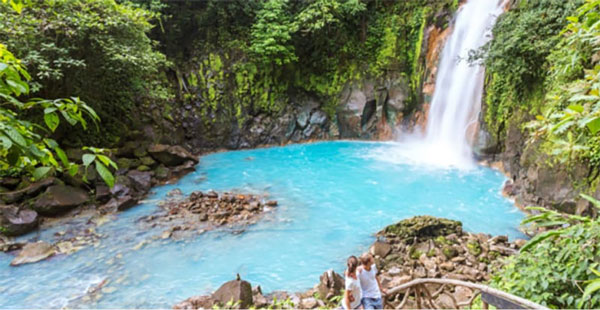When it comes to retirement destinations, Costa Rica is a perennial favourite. Both International Living and Conde Nast Traveler currently rank Costa Rica as the number two greatest international destination for retirees. What do those groups know, and how much do they tell the hundreds of North Americans who relocate there annually? Retirees can find the carefree existence they've been dreaming of in Costa Rica thanks to the country's tropical environment, abundant natural beauty, advanced medical care, well-established infrastructure, manageable residence requirements, and relatively low cost of living. Retirement in Costa Rica is worry-free thanks to the country's stable government and welcoming population. What follows is a complete guide to retiring in Costa Rica.
Emigration Programs for Retiring to Costa Rica
The flight time from the United States to Costa Rica is relatively quick. However, once you get there, you'll need the appropriate documentation to remain and enjoy your retirement.
The Pensionado Program is designed specifically for retirees and should be your first choice as a resident. You need to be receiving at least $1,000 per month from a pension or retirement fund to qualify. When the funds reach your Costa Rican bank account, you'll need to exchange them for colones. Then, throughout your stay, withdraw cash and use it in whatever you like.
The Rentista Program is the alternative immigration route you can take. Those who cannot rely on a steady retirement income might benefit more. You may be eligible if you can verify a monthly payment of at least $2,500 for two years or a cash balance of at least $60,000. Once again, you can access the money once you deposit it into a Costa Rican bank account.
The Inversionista Program is the third and final choice. For this, you'll need to immediately put down at least $200,000 in a legal Costa Rican business or property.
Amazing Climate
Retirees in Costa Rica can enjoy the lifestyle they've always dreamed of thanks to the country's mild year-round temperature and plenty of outdoor activities. Costa Rica has one of the world's greatest temperatures all year. There's more sunshine in the winter here than in Hawaii or Florida. Since the province of North Pacific Guanacaste is the driest in Costa Rica, the humidity level here is lower than in the rest of the country.
There is plenty of sunshine even during the rainy season (May–November) when soothing rain falls. The beautiful weather is beneficial to one's emotional and physical well-being.
The lovely beaches, golf courses, and fishing holes are always open for us to enjoy our favourite outdoor pursuits. And if you long for the crisp air of your former home's spring or fall, you need only travel a few hours to Costa Rica's central mountains.
Healthy Lifestyle and Longevity

Those looking to retire in Costa Rica can do so with the knowledge that they will be exposed to a culture prioritising health and longevity. Could it be the slower tempo of life? Or would you prefer a healthy diet incorporating fresh produce, like the seasonal fruits and vegetables grown in your backyard? It may be the year-round pleasantness that makes outdoor activities possible.
Many studies have examined what makes people happy and healthy in the world's blue zones—the five places where people live the longest. Tamarindo and Playa Flamingo, two Pacific Coast towns, are in Costa Rica's blue zone, which lies in the province of Guanacaste. Demographer Dan Buettner showed that despite medical costs being only around 7% of what they are in the United States, Nicoya Peninsula Costa Ricans have a fourfold higher chance of living to the age of 100 than men in the United States. How long may your retirement in Costa Rica possibly last?
Cost
The cost of living is a major consideration for retirees considering moving abroad. Although Costa Rica does not have the cheapest price of living in Central America, it may be the finest value. Retirees in Costa Rica have access to first-rate medical care, cutting-edge infrastructure (including high-speed internet), and everything else they want or need. Your monthly income will likely be set if you retire in Costa Rica, so you'll want to stretch it as far as possible. And there are intelligent strategies for getting the most out of your pension or retirement money.
Your living expenses will be determined mostly by two variables: your location and the kind of lifestyle you choose to lead there. Properties on or close to the beach in coastal areas, such as Tamarindo and Flamingo, are more expensive than similar properties further inland. Cities typically have higher housing costs than their suburbs do.
Rich Culture

Ticos—Costa Ricans—are kind and laid-back. "Pura Vida" is a typical response. It means "pure life". It describes their carefree lifestyle. They'll help a neighbour or have fun. They adore family, cuisine, and football (soccer). Even if you speak English, they'll strive to comprehend you. If you learn Spanish, they'll like you even more for wanting to connect.




